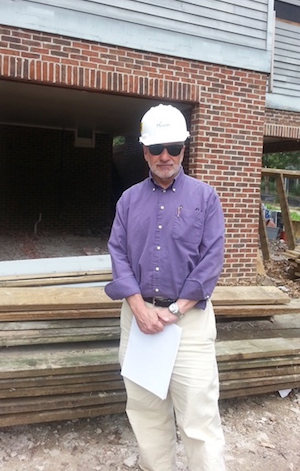By Rich Rubenstein, University Professor of Conflict Resolution and Public Affairs
In a history now spanning almost forty years, the School for Conflict Analysis and Resolution has been most fortunate in its choice of leaders. Of the nine people who have held the position of dean or director, some made their reputations primarily as scholars and teachers, some as practitioners, and some as administrators. But all managed to use their existing abilities and develop new skills in ways conducive to the growth and development of the School.
Before taking the reins in 2013, Kevin Avruch, our outgoing dean, was a beloved member of the S-CAR faculty (Henry Hart Rice Professor of Conflict Resolution and Professor of Anthropology), a former George Mason University Faculty Member of the Year, and an internationally acclaimed scholar and teacher. He had had practice experience as well, and served for several years as the School’s associate director, but Kevin was known primarily as the field’s outstanding authority on culture and conflict—the author of the classic works Culture and Conflict Resolution (1998) and Context and Pretext in Conflict Resolution (2012), as well as five more books and scores of much-cited articles. (Indeed, the chapter on “culture and conflict” in the field’s best-selling textbook, Contemporary Conflict Resolution (4th Ed.), is devoted almost entirely to Kevin’s work.)
In addition to his scholarly reputation, Kevin was known throughout the University as a skillful advocate for the educational policies in which he believed and a masterful resolver of intra-faculty disputes. His sense of humor and ability to mentor students were legendary. But how he would handle other major challenges of the dean’s job, such as raising funds for S-CAR programs and students, and managing the complex relationship between the School and the University’s central administration, was not so predictable.

Kevin Avruch at the construction site for S-CAR’s Point of View International Retreat Center.
By the end of Kevin’s term as S-CAR dean, the answers to these questions had become transparently clear. The colleague initially thought of primarily as a scholar and teacher had raised several million dollars for programs ranging from the completion and operation of Point of View, S-CAR’s beautiful conference center in Mason Neck, Virginia, to student scholarships, which tripled in amount during his tenure. Indeed, in terms of dollars brought to the program, Dean Avruch proved to be one of the most effective fundraisers in S-CAR history.
Furthermore, despite the School’s relatively small size (by George Mason standards), S-CAR had maintained its hard-won position as a respected independent unit of a rapidly growing university. As dean, Kevin helped grow the School’s existing study and practice centers, brought the Mary Hoch Center for Reconciliation to the University, and presided over a faculty-led process that revised the School’s bachelor’s and master’s degree curricula. He also greatly encouraged faculty and student practitioners to develop new peacemaking and peacebuilding projects and new academic initiatives. My colleague Karina Korostelina called his role in this regard “inspirational.” Daniel Rothbart noted that, as dean, Kevin served as “an unfailing source of support, encouragement, and counsel” for faculty members, as well as “a constant advocate for students.”
Somehow, Kevin also managed to keep his sense of humor despite the vicissitudes of a position requiring a mix of charismatic and bureaucratic skills. His colleagues happily anticipate his return to the faculty ranks. Meanwhile, Kevin’s departure as the leader of S-CAR leaves a large space to be filled by his successor, Professor Alpaslan Özerdem, who currently directs the Centre for Trust, Peace, and Social Relations at the University of Coventry in the UK.
Kevin Avruch’s contribution as dean to S-CAR’s communal life and spirit will be long remembered. There is reason to believe that with the coming of Dean Özerdem, the School’s good fortune in securing the leadership that it needs will continue well into the 2020s.
